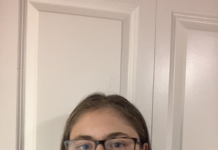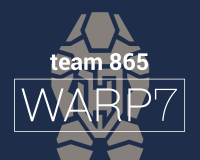Hello FIRST community! While there may be a variety of ages reading this issue, this article is aimed at those who will be graduating high school in upcoming years! One major question you may have about the post-secondary application process likely involves scholarships. Multiple members of the FIRST Canada youth council have won major scholarships to help finance their education. Below is the advice of Maria M., a youth council alumni, who won Morehead-Cain Scholarship, Queen’s Schulich Leadership Scholarship, Queen’s Commitment Scholar, FIRST Robotics Canadian Women in STEM 2022.
How did you tackle writing scholarship applications? Did you have a certain process for essays, short answer questions, etc?
Organization was really important for me to apply for all the scholarships that I wanted to. Grade 12 is an extremely busy year, so the summer before I created an Excel spreadsheet that had all the important dates of scholarships I was targeting (i.e. submission date, additional materials required, etc). This also allowed me to prioritize which scholarships to work on and give myself enough time to proofread alone and send to others for feedback.
Having a proofreader other than yourself is super important because they can give you advice about your writing you might not have previously thought of. I would also suggest creating a “submission date” a week earlier than the scholarship is actually due so you are not working on it at the last minute. If you are unexpectedly busy, this also gives you extra time to proofread your answers. You can also use online tools to help make your writing more concise (I literally just searched up a concise writing tool) as many applications have strict word counts.
In your answers, make sure to integrate language that speaks to the core values of the scholarships. If it is heavily academic, focus on your strong academic work ethic. If it’s about character, focus on how certain activities helped you develop leadership. This also will save you time because you can tweak your answers for every application instead of completely rewriting your answers.
In your answers, breadth over depth. Most applications have a space for you to list general activities you were involved in. In short answers, really focus on explaining your role in the activity and its impact. When writing your answers, use the STAR method: Situation, Task, Action, Result.
Situation: Where/What was the activity for?
Task: What did you aim to accomplish?
Action: What action(s) did you take to achieve this goal?
Result: What was the impact? Who was impacted? How big was the impact? (be as specific as possible)
If there were interviews involved in your application process, how did you prepare for them?
Interviews were a part of my process for the Morehead-Cain process (semi finals and finals). In terms of preparing for them, I talked to other people who have done interviews for scholarships before and kind of asked them how they prepared i.e. how to deal with nerves. If possible, do a practice interview with guidance counselors from your school. They have been through this process for many years, and will give you helpful feedback on how to answer commonly asked questions. It also helps you learn to think on your feet, as real interview questions aren’t always super straight forward. There were two types of interviews: pre recorded and live in front of a panel. I found the prerecorded ones harder because there was less time to prepare an answer. To combat that, I made a list of personal achievements I wanted to highlight and integrated them into my answers. For the live panel interviews, my best advice is it’s okay to slow down/ask them to repeat the question/think about your answer. Interviewers know you are nervous and won’t penalize you for this. All my interviews were virtual, but I would still advise anyone to prepare and act like they were going to an in person interview. Get a goodnight’s sleep, eat a good breakfast, arrive 10 minutes early to the interview platform, business casual attire and most importantly look directly into your webcam. This gives the impression to the panel on the other side you are looking directly at them, as opposed to looking at your screen. It took awhile to get used to, but it definitely helped boost my confidence as well because my chin was up as I answered. Lastly, don’t get discouraged! You may have multiple scholarship interviews, and they get easier with time as you become more comfortable explaining your story throughout the admission process.
What was your best resource for finding out about different scholarships?
- Scholarships Canada. It has a comprehensive list of scholarships to apply for, some are unique to specific schools. Additionally, there are specific scholarships if you are party of minority group (i.e. woman, Black, Indigenous). These are a great resource and can add up if you apply for a lot of them.
- FIRST Robotics Canada. One many of you are likely familiar with, there is an entire page dedicated to scholarships reserved for FIRST participants. If you are planning to study engineering or general science, there are many options available.
- Guidance counselors: There are a few scholarships that require school nomination, so I would suggest connecting with your guidance counselors the summer before grade 12 if possible. This also makes it easier to collect important documents like transcripts and teacher recommendations letters if you have already shown demonstrated interest. p
What did you focus on highlighting in your applications?
Throughout the application process, I centred all my answers around my personal story. This created a narrative that was easy for admissions officers to read. This is something that has to be personal and specific. Think of it as the “why” behind the activities you do. My story centred around being part of an underrepresented group in STEM, and how that motivated me to create opportunities for the next generation. If adversity is part of your story, make sure to focus on how it affected you, but mostly how you overcame it (i.e. managing imposter syndrome with the help of mentors). Weaving in this personal aspect will help set you apart from other applicants.
Any last advice?
Don’t be afraid to reach out and ask for help! This is one of the most stressful moments of your academic career and for a lot of people, the first time entering a long and difficult application process. Take breaks when possible to go outside, get a snack or even take a nap. You do your best work when you’re most alert, and with the proper organization you can complete all your applications without (totally) sacrificing your health and sleep schedule. Although the first semester of grade 12 will be extremely busy, treasure your moments with friends as much as possible. It truly goes by in a flash.







